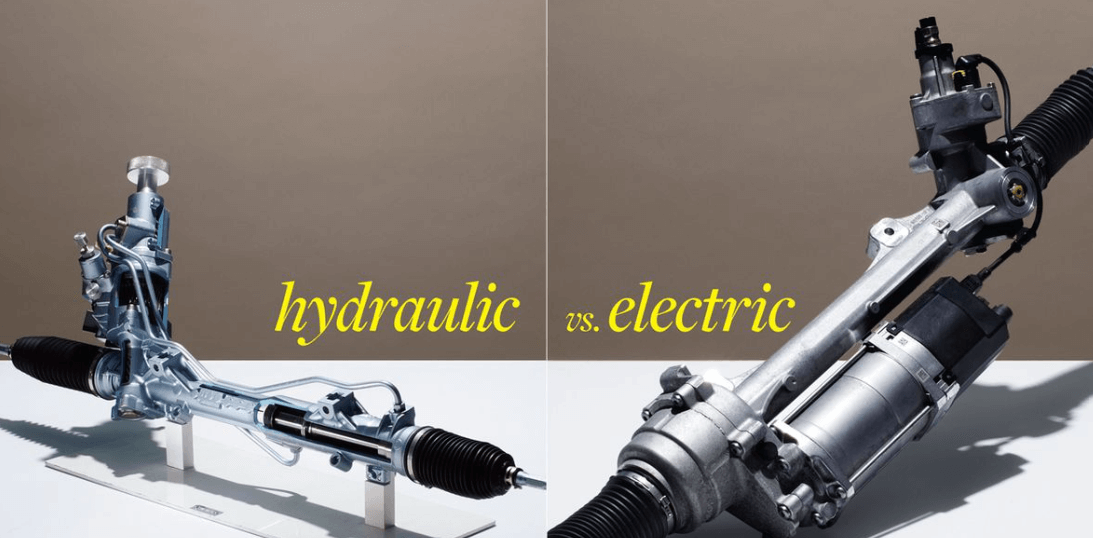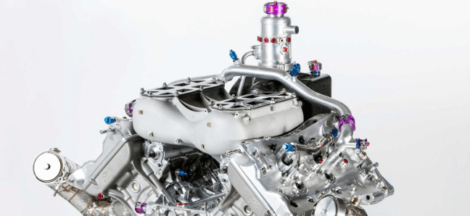Power steering is vital in modern cars, reducing driver effort and improving the driving experience. Two main types exist: hydraulic (HPS) and electric (EPS), each with distinct advantages. Understanding the subtleties of these systems becomes essential, not only for driving enjoyment but also for considerations related to new car insurance.
Hydraulic Power Steering (HPS): The Fluid Connection
Components And Working Mechanism
Hydraulic power steering uses fluid to amplify driver force, ensuring smoother steering. Vital components include the power steering pump, steering gear, hydraulic lines, steering wheel, and drive belt. The hydraulic fluid connects the steering and front wheels, improving vehicle handling.
Maintenance And Efficiency
Regular maintenance, including inspections, repairs, and hydraulic fluid replacements, is essential for optimal performance. The system’s energy efficiency, with variable assistance based on vehicle speed, simplifies steering in challenging situations.
Electric Power Steering (EPS): Efficiency And Customisation
Working Mechanism And Components
Electric Power Steering (EPS) replaces hydraulic systems with an electric motor, offering customisable control and increased fuel efficiency. The three main components are torque sensors, Electronic Control Unit (ECU), and the motor. Torque sensors measure steering wheel effort and are relayed to the ECU, instructing the motor to provide the required steering assistance.
Benefits And Efficiency
EPS stands out for its energy efficiency. It activates the motor only when steering assistance is needed, contributing to improved fuel economy compared to constant operation in hydraulic setups. The simplified design, with fewer moving parts and no fluid reservoirs, results in lower maintenance expenses. The Electronic Control Unit also allows easy tuning of the steering’s feel and responsiveness.
EPS vs. HPS: A Comparative Analysis
Fuel Economy And Interaction With Driver-Assistance Features
EPS activates selectively based on steering input, enhancing fuel economy and integrating seamlessly with driver-assistance features. In contrast, HPS, with continuous hydraulic pump operation, provides a smoother feel but consumes more fuel.
Weight And Complexity
HPS systems are generally heavier and more complex than EPS systems, potentially leading to increased maintenance expenses in case of malfunctions. While HPS provides superior feedback and a more traditional steering feel, EPS is preferred for its energy efficiency and compatibility with evolving automotive technologies.
Choosing Between Hydraulic And Electric Steering
The decision between hydraulic and electric steering often concerns personal preference, driving performance needs, and fuel efficiency priorities. Hydraulic steering offers a more realistic driving experience, while electric steering systems contribute to lower emissions and better fuel economy. Additionally, it’s crucial to consider the impact on new car insurance, where advanced technology may result in higher premiums. The car insurance process typically involves selecting coverage options, obtaining quotes, submitting necessary documents, and completing the required paperwork for policy activation. Claims are subject to terms and conditions set forth under the motor insurance policy. *
Whether opting for a comprehensive car or third-party coverage, ensuring your vehicle is adequately insured becomes paramount. Make sure you renew Bajaj Allianz car insurance online well on time for uninterrupted coverage. Claims are subject to terms and conditions set forth under the motor insurance policy. *
In conclusion, the choice between hydraulic and electric steering involves a nuanced evaluation of driving preferences, performance requirements, and the broader implications for car insurance.
Subscribe to Bajaj Allianz General Insurance YouTube Channel here!
*Standard T&C Apply
Disclaimer: The content on this page is generic and shared only for informational and explanatory purposes. It is based on several secondary sources on the internet and is subject to changes. Please consult an expert before making any related decisions.
Insurance is the subject matter of solicitation. For more details on benefits, exclusions, limitations, terms, and conditions, please read the sales brochure/policy wording carefully before concluding a sale.





 Cassidy Hutchinson Net Worth
Cassidy Hutchinson Net Worth